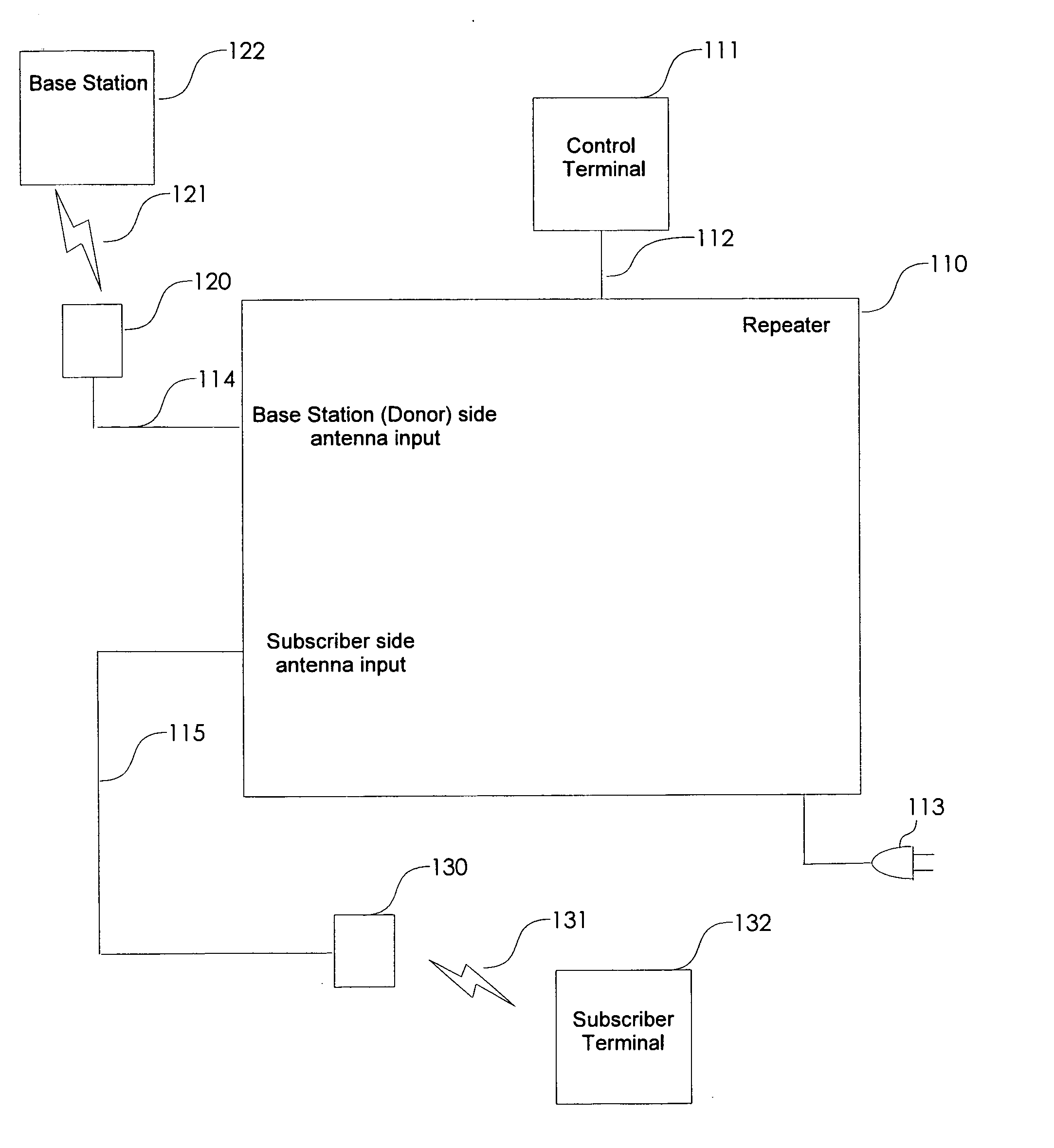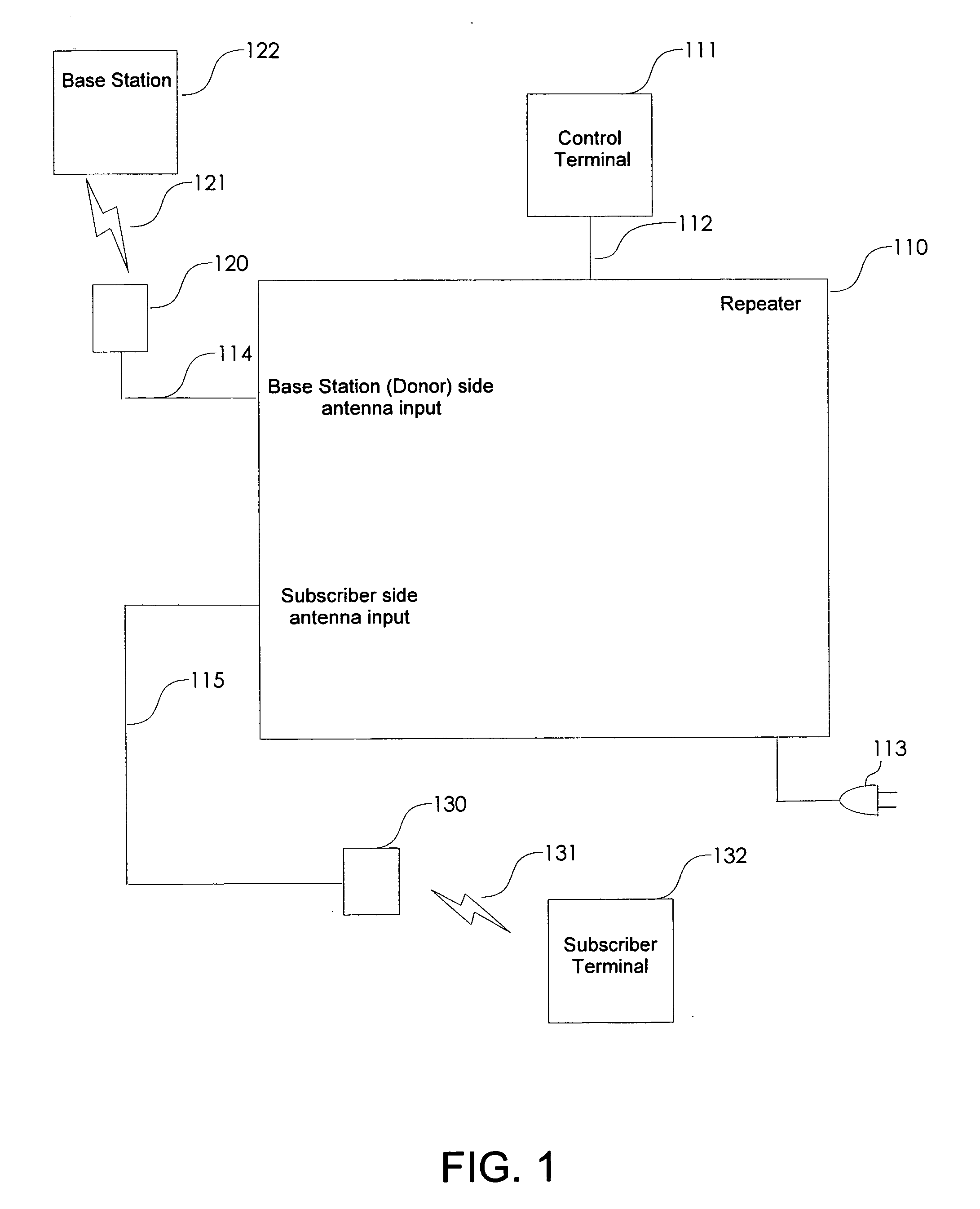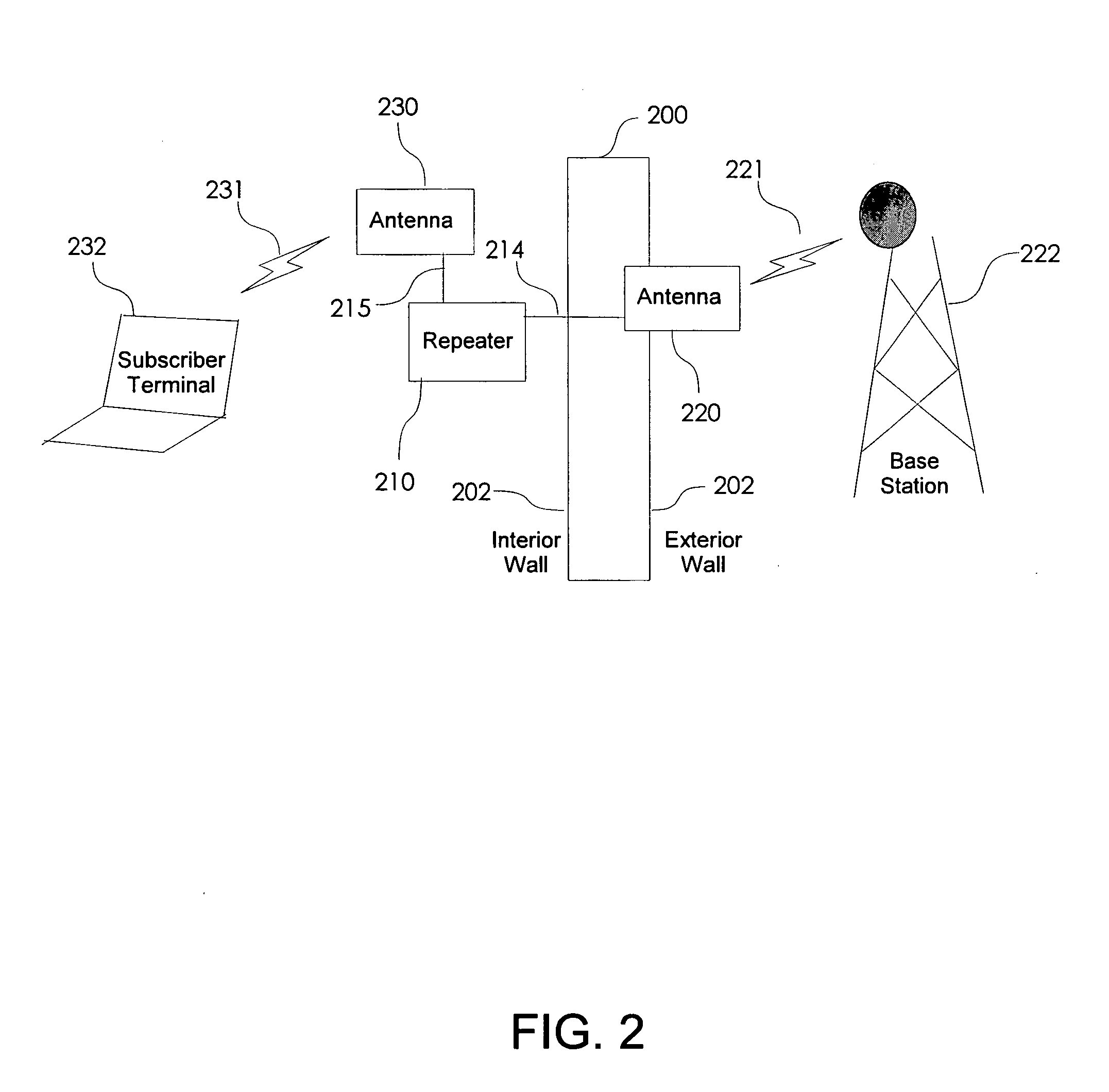Non-frequency translating repeater with detection and media access control
a repeater and non-frequency translation technology, applied in the field of wireless networks, can solve the problems of preventing adequate coverage, affecting the operational range of the protocol itself, and challenging realization of performance levels,
- Summary
- Abstract
- Description
- Claims
- Application Information
AI Technical Summary
Benefits of technology
Problems solved by technology
Method used
Image
Examples
Embodiment Construction
[0018] Referring now to FIG. 1, an exemplary non-frequency translating repeater 110 is shown. The repeater 110 can include a control terminal 111 connected to the repeater 110 through a communication link such as a link 112 which can be a RS-232 connection or the like for conducting serial communication for various purposes such as to configure the repeater 110, collect various metrics, or the like. It will be appreciated that in a production model of the repeater 110, such a connection will not likely be used since the configuration will be completed during manufacturing or the repeater 110 will be automatically configured under control of, for example, a microprocessor, controller, or the like. The repeater 110 system may also include an external antenna 120 for communicating with one side of a TDD repeater connection such as a base station 122 through a wireless interface 121. It will be appreciated that the base station 122 can refer to any infrastructure node capable of serving...
PUM
 Login to View More
Login to View More Abstract
Description
Claims
Application Information
 Login to View More
Login to View More - R&D
- Intellectual Property
- Life Sciences
- Materials
- Tech Scout
- Unparalleled Data Quality
- Higher Quality Content
- 60% Fewer Hallucinations
Browse by: Latest US Patents, China's latest patents, Technical Efficacy Thesaurus, Application Domain, Technology Topic, Popular Technical Reports.
© 2025 PatSnap. All rights reserved.Legal|Privacy policy|Modern Slavery Act Transparency Statement|Sitemap|About US| Contact US: help@patsnap.com



